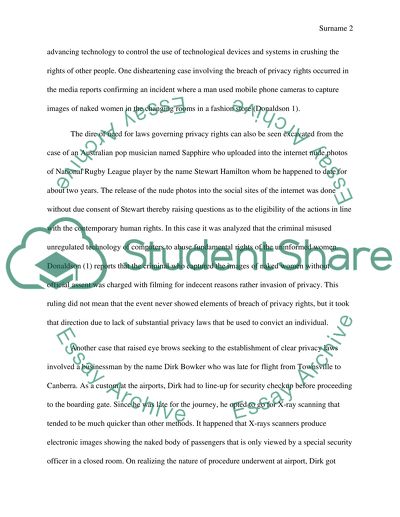Cite this document
(“Should there be a legal right to privacy in Australia Essay”, n.d.)
Should there be a legal right to privacy in Australia Essay. Retrieved from https://studentshare.org/law/1435153-should-there-be-a-legal-right-to-privacy-in
Should there be a legal right to privacy in Australia Essay. Retrieved from https://studentshare.org/law/1435153-should-there-be-a-legal-right-to-privacy-in
(Should There Be a Legal Right to Privacy in Australia Essay)
Should There Be a Legal Right to Privacy in Australia Essay. https://studentshare.org/law/1435153-should-there-be-a-legal-right-to-privacy-in.
Should There Be a Legal Right to Privacy in Australia Essay. https://studentshare.org/law/1435153-should-there-be-a-legal-right-to-privacy-in.
“Should There Be a Legal Right to Privacy in Australia Essay”, n.d. https://studentshare.org/law/1435153-should-there-be-a-legal-right-to-privacy-in.


